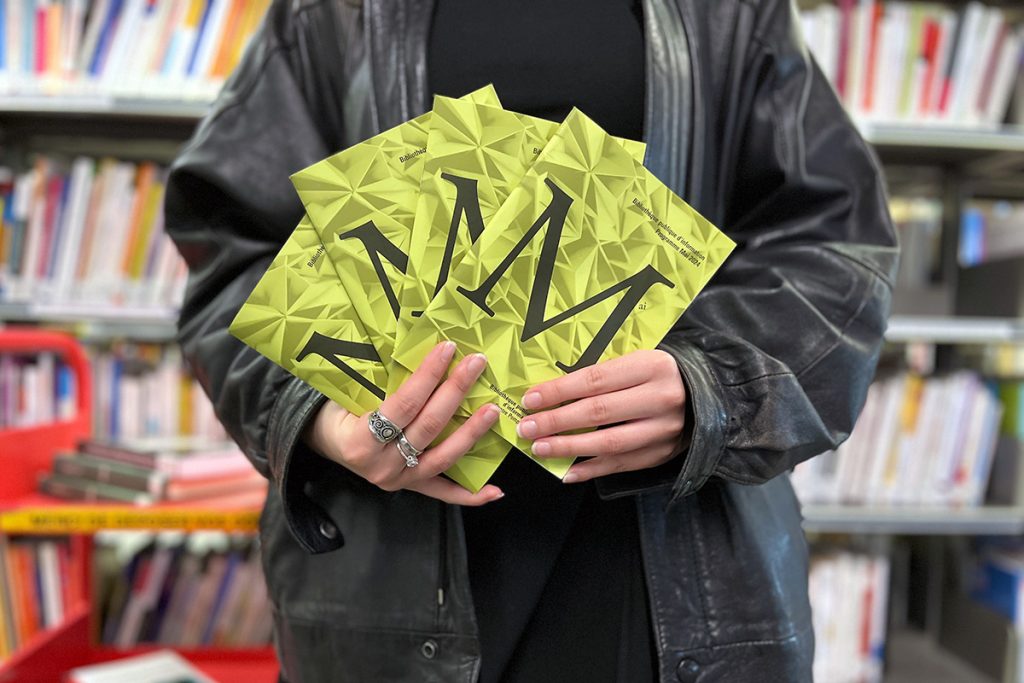
The Bpi offers a rich program for the month of May! Visit the new exhibition Corto Maltese, une vie romanesque and the musical exhibition Scénariser un texte. Attend screenings of engaged documentary films as part of Contre-chant: luttes collectives, films féministes. Other highlights of the month include a meeting with athlete Charlotte Hym as part of the Les femmes au JO cycle, a breakdance battle, a Comic Thursday with Jean Cremers and much more… Discover the full program online or in the library!
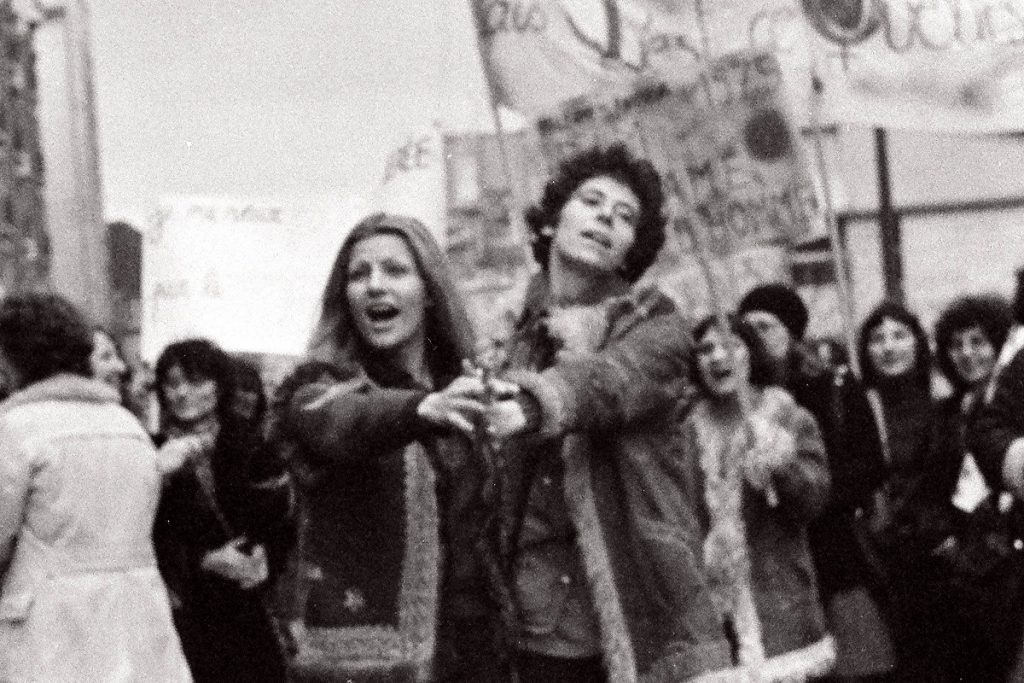
Spring is a bubbling, eruptive season, propitious for protest movements and collective mobilizations. With Contre-chant : luttes collectives, films féministes, La cinémathèque du documentaire à la Bpi invites you to retrace the struggles of yesterday, in the light of the struggles of today.
In 1982, Carole Roussopoulos, Delphine Seyrig and Ioana Wieder founded the Centre audiovisuel Simone de Beauvoir to house, preserve, produce and distribute an audiovisual heritage. Over time, this unique collection of films on the history of women and their struggles for equality, offers a fresh look at the changes taking place in our society, the consequences of which today are a thunderclap for cinema and society as a whole.
The enchanted feminism of the pioneers accompanied the struggles for freedom of abortion and contraception, the fight against homophobia, and the demand for equality and parity. Activists Florence Kennedy and Kate Millett, like filmmaker Agnès Varda, prove that these ever-fragile conquests are common to our time, that they are part of transnational movements of solidarity.
The ambition of Contre-chant is not only to give an account of a moment, not only a joyful one, of collective creation by showing the classics of the repertoire. The retrospective unfolds a subjective and passionate alter-history of the female condition, based on militant experiences that respond to each other over time and join hands across gender boundaries, across all borders. Because some of yesterday’s struggles are still relevant today.
The great Georgian filmmaker Otar Iosseliani, who passed away last December, is the subject of a special tribute to shed light on the documentary side of his work. His last monumental film on the history of his country, Seule Géorgie, will be presented at the end of the season.
Once again this spring, regular events offer a flourishing panorama of creation. Fenêtre sur festivals welcomes the Festival du court métrage de Clermont-Ferrand for a carte blanche in resonance with Contre-chant, focusing on insoumises, those militant women with a camera. The Images documentaires meetings follow on from the magazine issue, with Mehran Tamadon and others questioning the filmmaker’s body on screen.
Du court, toujours devotes a session to the excellent work undertaken by Territoires en images to “transgress our established perceptions and push back the boundaries of our representations”; a session to present the universe of Annabelle Amoros, between imagination and genre cinema; a session with the magazine Documentaires sur le son, which accompanies documentary films.
With the CNC (Centre national du cinéma et de l’image animée), La fabrique des films invites you to hear Chilean filmmaker René Ballesteros talk about his new film project in progress, on Mapuche land. For La cinémathèque idéale des banlieues du monde, an exceptional double screening with Dominique Cabrera will take place in his presence. Stéphane Breton’s seminar, in partnership with Ehess, returns again in May and June, this time focusing on the possible combinations of word and image.
Les yeux doc à midi offers the visions of such demanding authors as Alain Cavalier, Richard Dindo, Harun Farocki, Abbas Kiarostami, Edgar Morin, Claudio Pazienza, ou Jean Rouch. Test films, but above all works in their own right, offered by the lesyeuxdoc.fr platform.
Once again, special screenings with our major partners offer an exclusive opportunity to discover Alexis Pazoumian‘s first film, thanks to France Télévisions, and Sylvère Petit‘s first feature-length documentary, thanks to ARTE. Last but not least, the three latest films by Marc Isaacs, Stéphane Breton and Benjamin Delattre will be offered as French premieres this season.
To find out more, download the spring program! (PDF, 1 MB) or view the full program on our agenda.
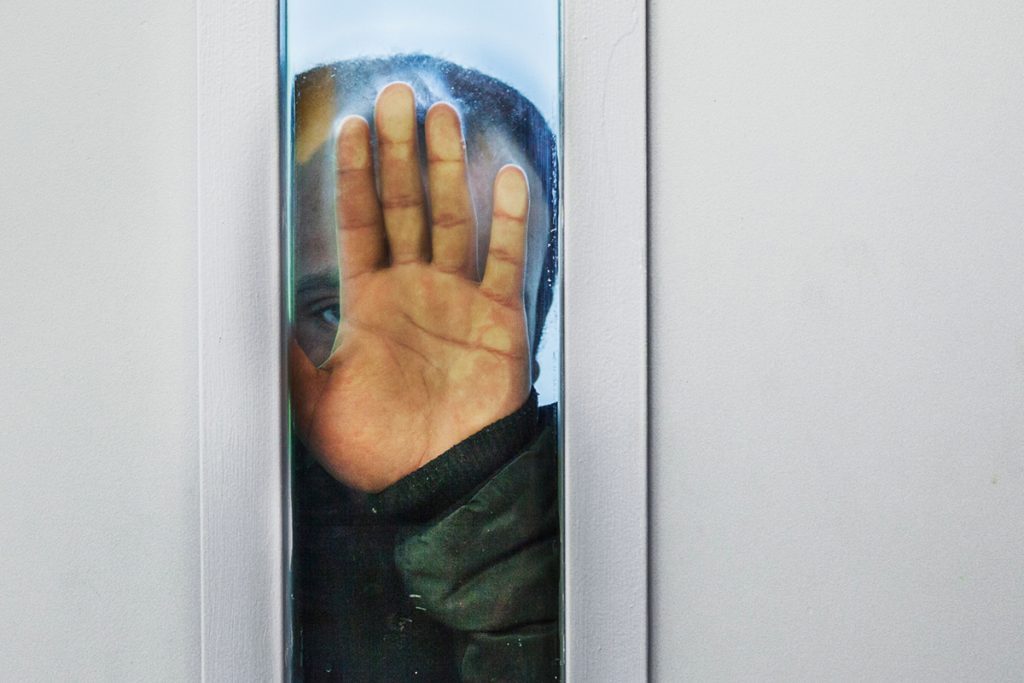
To launch its seventh year of screening at the Centre Pompidou, La cinémathèque du documentaire à la Bpi presents a retrospective dedicated to filmmaker Stéphane Mercurio, whose work is being brought together for the first time.
For over thirty years, Stéphane Mercurio has been giving a voice to the invisible ones with immeasurable empathy. People deprived of housing or freedom, in search of identity or gender — the filmmaker listens to and films the marginalized of the French archipelago, those for whom life is a struggle. Mercurio likes to elicit the liberation of thought through words, which we rarely hear with such acuity. In the shadow of hospital and prison walls, on the stage of a theatre, the filmmaker tailors a cinema in which the intimate questions our commonality. With the hope that each of her films will change the way we look at the world, Stéphane Mercurio sees cinema as “a civic space in which viewers are given space to think, and time to question themselves”.
This first French retrospective would not be complete without a five-film tribute to Christophe Otzenberger, Stéphane Mercurio’s unfailing travel companion. Hosted by François Ekchajzer (Télérama), the masterclass on Saturday 13 January will take us on a journey through Otzenberger’s career, evoking his documentary and fiction films, as well as his sound films for radio. Like every winter, La cinémathèque du documentaire à la Bpi expands the program of the Hors pistes festival. This year, echoing the whimsical personality of guest of honor Thomas Salvador, it features four screenings full of burlesque twists and turns on a journey to summits that are not always snowy.
This winter, our regular events offer a luxuriant panorama of contemporary creation. A whole new generation of documentary filmmakers is presented for the first time by the Bpi for Du court, toujours. The École documentaire de Lussas in Ardèche and Portraits de Mellionnec (Côtes-d’Armor) unveil some of their nuggets. Another special opportunity to discover cinema in progress, La fabrique des films (The Film Factory) invites you to listen to the intimate dialogue between filmmaker and editor, thanks to artists invited in residence by the Périphérie film creation center. With the CNC (Centre national du cinéma et de l’image animée), La fabrique des films will be an opportunity to discover the documentary project in progress by visual artist Emma Boccanfuso. Last but not least, Fenêtre sur Festivals welcomes the Festival La Rochelle Cinéma for a carte blanche around two of the festival’s tutelary figures: Alain Cavalier and Spanish filmmaker José Luis Guerín. It is an ideal opportunity to catch up with Cavalier, after the retrospective devoted to him in 2019.
Les yeux doc à midi gives librarians from Île-de-France carte blanche once again to present a selection of films from the Les yeux doc platform. The programme culminates in March with the screening of films in competition for the 4th Les yeux doc Audience Award. The public is invited to vote and have their say at the end of these screenings.
Once again, Séances spéciales (special screenings) with our partners offer the opportunity to discover the latest films by Delphine and Muriel Coulin, thanks to ARTE, and the latest film by Indian director Sarvnik Kaur, thanks to France Télévisions. Finally, thanks to Scam, we’re celebrating Jean-Pierre Thorn, who was awarded the Charles Brabant Prize for lifetime achievement.
Two events this season revisit history, whether painful or full of hope. Les Rencontres d’Images documentaires, with Gabriel Bortzmeyer and Christophe Postic, revisits two major works of war cinema, by Stefano Savona and Radovan Tadic respectively. La cinémathèque idéale des banlieues du monde continues to explore singular territories with Chats errants, and important places of memory such as the Drancy detention camp. Finally, Trésors du doc focuses on the documentary work of Med Hondo. The Franco-Mauritanian filmmaker, known for his anti-colonialist stance and, incidentally, for being the voice of Eddie Murphy on the silver screen, has put his convictions at the service of a cinema committed to freedom fighters.
To find out more, download the brochure (PDF, 4 MB) and discover the full programme offered this winter by La cinémathèque du documentaire à la Bpi.
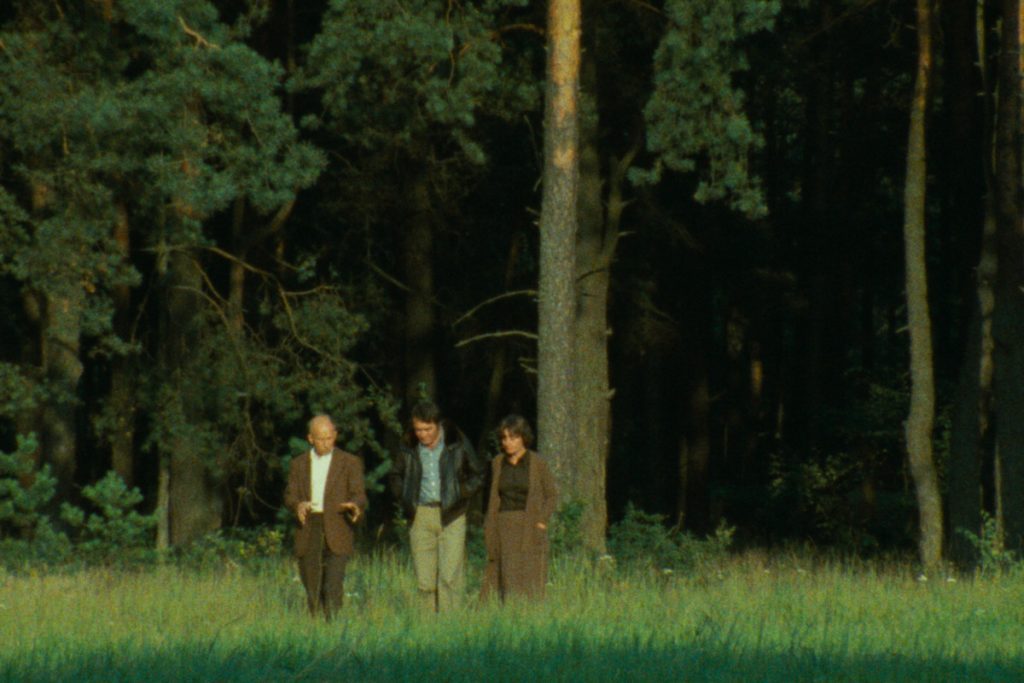
To round off the Year of the Documentary, La cinémathèque du documentaire à la Bpi intends to show the extraordinary power of cinema to make us grow, to question us and to fill us with wonder. This autumn’s program brings together the full diversity of documentary voices and forms. Five filmmakers are highlighted to savor their singularity and celebrate their commitment.
To open the season, a vibrant tribute is paid to Bruno Muel, who passed away last spring. Jean-Pierre Thorn, Francine Muel and other special guests will pay tribute to his unwavering commitment.
Then comes the first complete series of documentaries devoted to Claire Simon in France. To accompany forty years of cinema dedicated to the pleasure of telling stories with what reality offers to see and hear, filmmakers and critics will share their vision of her work. Among them Alain Bergala, Catherine Bizern, Vincent Dieutre, Thierry Garrel, Arthur Harari, Laïs Decaster and Romain Lefebvre. The filmmaker will offer a master class alongside editor Luc Forveille, and discuss the choices and approaches of her singular cinema.
The other highlight of the season is the first Claude Lanzmann retrospective since his death. A monument of cinema around the absolute masterpiece Shoah. Arnaud Desplechin and Wang Bing will each present one of the screenings of Shoah. In dialogue, nine rarities will extend the filmmaker’s fieldwork. The retrospective is also an opportunity to see other places with Claude Lanzmann and listen to other words, from Poland to Korea, from Paris to Israel. Five spoken-word events complete the sessions at the Centre Pompidou, the Mémorial de la Shoah and the Musée d’art et d’histoire du judaïsme. This is an opportunity to hear leading historians such as Tal Bruttmann, Denis Charbit and Sylvie Lindeperg, as well as film-makers such as Luc Dardenne and László Nemes, critics and memory professionals. They will discuss Lanzmann’s relationship with images, Poland’s Jewish past and the future of Shoah following its inclusion on UNESCO’s Memory of the World register. Caroline Champetier, the filmmaker’s director of photography, will also shed light on Lanzmann’s gesture and his conception of the shot.
The season spotlights filmmaker Dominique Marchais for an overview of his work, in conjunction with the premiere of his latest film. In his presence, we’ll explore our relationship with landscape and nature.
Among the regular appointments, Trésors du doc pays tribute to the memory of a committed filmmaker, Jocelyne Saab, pioneer of the new Lebanese cinema. Recently restored, her work stands out for its power and courage. Les yeux doc à midi presents the Europa mosaic (from Mariupol to Reims). La Fabrique des films welcomes the Archives françaises du film, then the Archives nationales, and finally Ioanis Nuguet. Du court, toujours celebrates the Agence du court métrage and filmmaker Pierre Hébert. Nouvelles écritures returns with the Burning lights prize at the last Visions du réel festival. Les rencontres d’Images documentaires focuses on images of a world at war. The Cinémathèque idéale des banlieues du monde welcomes Périphérie. Fenêtre sur festivals welcomes Cinélatino to screen the latest film by Chilean filmmaker Ignacio Agüero. Special screenings with our major partners France Télévisions, ARTE and Sacem offer exclusive access to the latest films by Stéphane Correa, Matthieu Bareyre and Arnaud des Pallières. With Scam, we celebrate Jean-Pierre Thorn for the Prix Charles Brabant.
From the Cinéma du réel festival, two other previews in the presence of the filmmakers: Yamina Zoutat‘s Chienne de rouge and the last two episodes of Mehran Tamadon‘s dialectic work. Finally, ciné-conférences organized with Ehess continue to explore the contiguous territories of reality in symbiosis with the Claude Lanzmann cycle, in the presence of Nicolas Bouchaud, for example. Director Pauline Horovitz will be the guest of a master class organized by DEMC master students. Last but not least, the conferences of the Université permanente de Paris focus on three major museums: The Louvre, the Rijksmuseum Amsterdam and the Centre Pompidou, with Ilona van Tuinen and Laurent Le Bon.
To find out more, download the program (PDF, 2 MB) and/or discover the full program offered this autumn by La cinémathèque du documentaire at the Bpi.
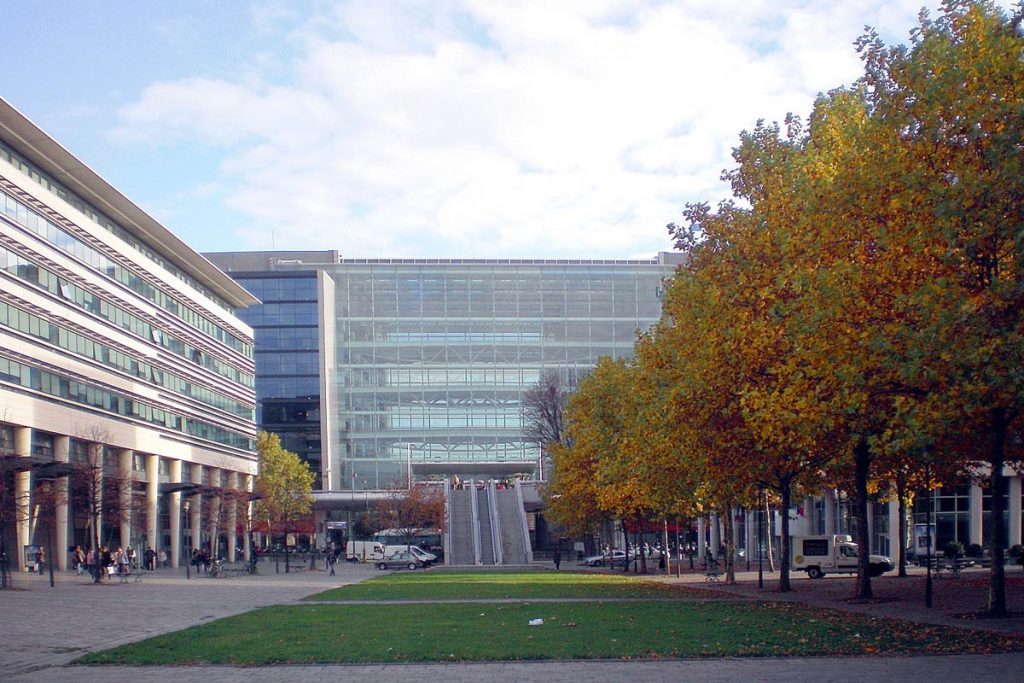
A new temporary site in the 12th arrondissement
After months of searching and more than 50 sites considered, the Bpi has found its future temporary location: the Lumière building, at 40 avenue des Terroirs de France (12th arrondissement), in a dynamic new district, just a stone’s throw from Bercy Village and a five-minute walk from the Saint-Emilion station (line 14).
The Centre Pompidou will close its doors in 2025 for at least four years of work (removal of asbestos from the facades and ceilings, changing of the windows, etc.). During the work, the Public Information Library will move to a new address. The library will occupy the 4th and 5th floors of this modern glass-fronted building, covering a surface area of more than 8,700 m2, i.e. almost the surface area currently occupied by the Centre Pompidou (10,400 m2).
Visitors will be welcomed with the same standards of comfort as at present: free access for all, dedicated equipment and furniture, the same opening hours (12pm-10pm on weekdays except Tuesdays, 11am-10pm on weekends and public holidays).
At the end of the works, the Bpi will return to its enlarged premises at the Centre Pompidou.
How to get there?
The provisional Bpi will be easily accessible by transport:
- Access Metro: line 14
- Bus : 24 and 64
- Tram : T3A
Relocation schedule
March 2025 → closure of the Bpi at the Centre Pompidou (IVe)
Summer 2025 → reopening of the Bpi at 40 avenue des Terroirs de France (XIIe)
2030 → reopening of the Bpi at the Centre Pompidou
The move in figures
- 8 700 m2
- 1500 seats for reading
- 310 000 documents and 150 digital databases
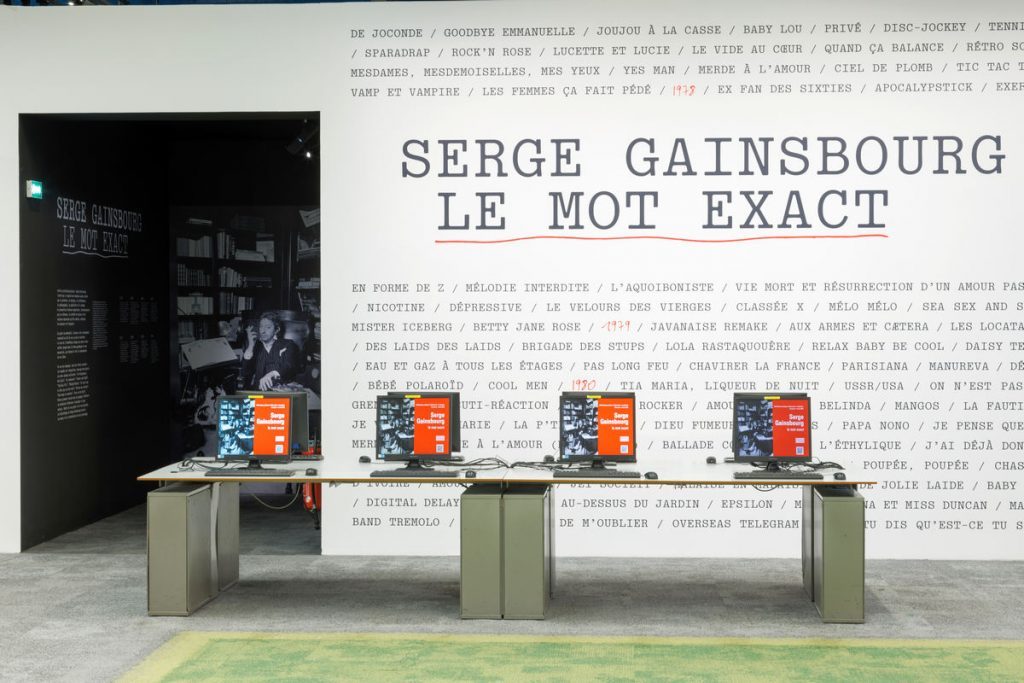
Given the success of the exhibition Serge Gainsbourg, the exact word, with nearly 82,000 visits since its opening last January, the Bibliothèque publique d’information and the Maison Gainsbourg join forces to extend it until September 3, 2023.
Acclaimed by the press and the public who came in large numbers, the exhibition will thus be open to visitors, especially international ones, throughout the summer, free of charge. It allows visitors to discover works and unpublished archives from the collection of the Maison Gainsbourg, whose opening is scheduled for September 20.
The exhibition “Serge Gainsbourg, the exact word” plunges visitors into the literary landscape of the artist by welcoming them with a vast selection of works drawn from its heterogeneous library. It highlights the creation of his media “double”, Gainsbarre, a character straight out of his songs, in the tradition of the literary doubles of the nineteenth century, from Oscar Wilde’s Portrait of Dorian Gray to Guy de Maupassant’s Horla. The documents and personal objects on display – manuscripts, typescripts, facsimiles, scores – associated with the unpublished film by Yves Lefebvre provide an insight into the artist’s writing and composition process and illustrate the tremendous productivity of the author.
Free guided tours of the exhibition are offered to the public every day at 5 p.m. except weekends and public holidays.
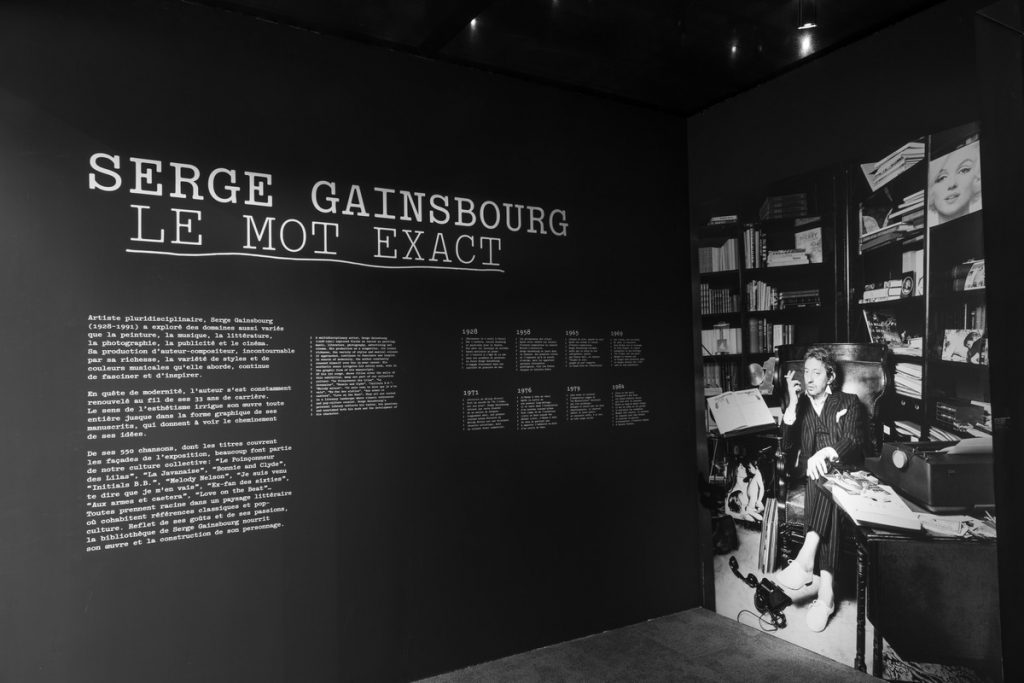
© Hervé Véronèse 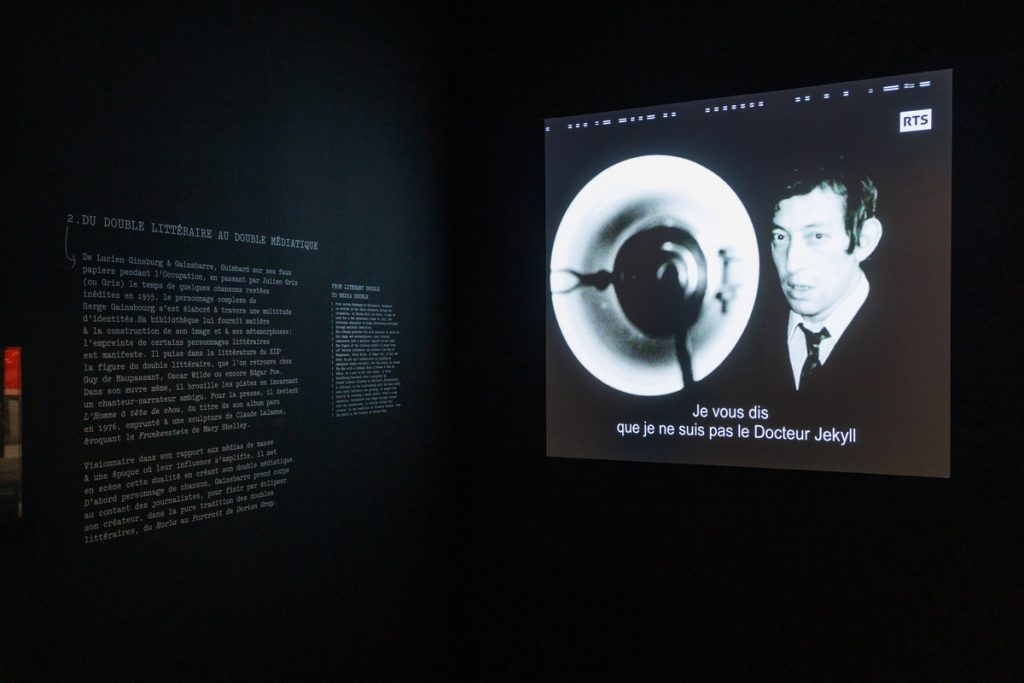
© Hervé Véronèse 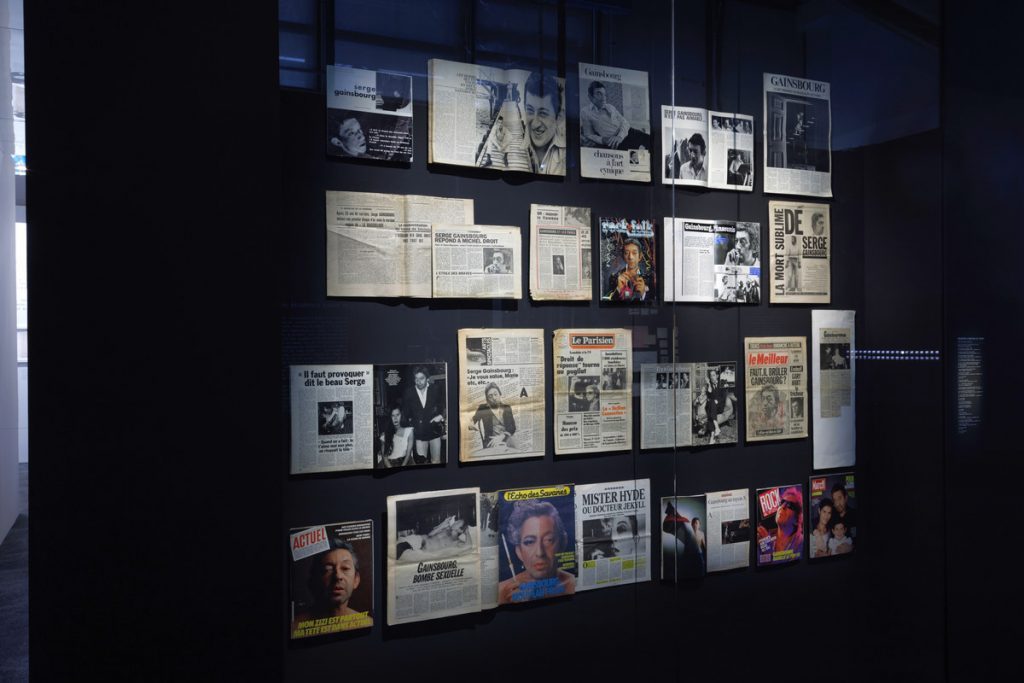
© Hervé Véronèse 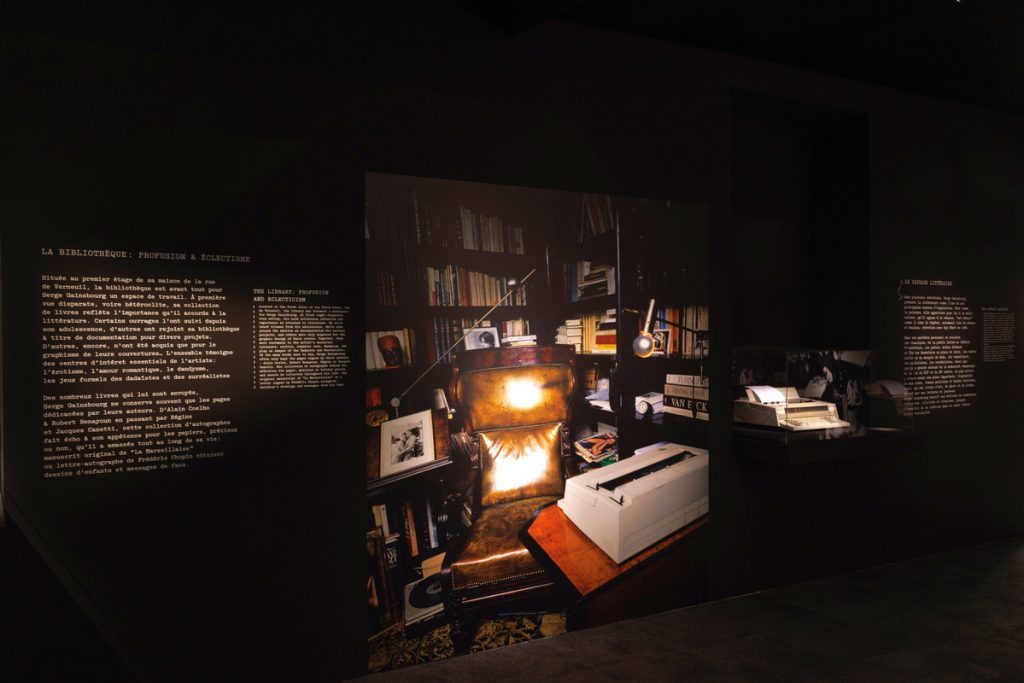
© Hervé Véronèse 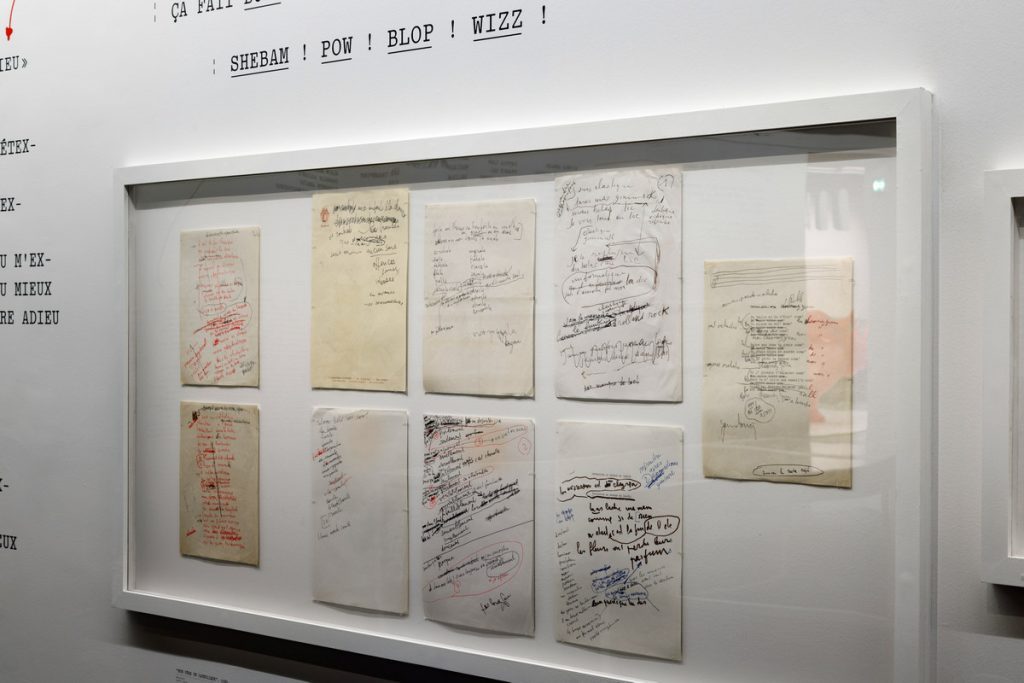
© Hervé Véronèse 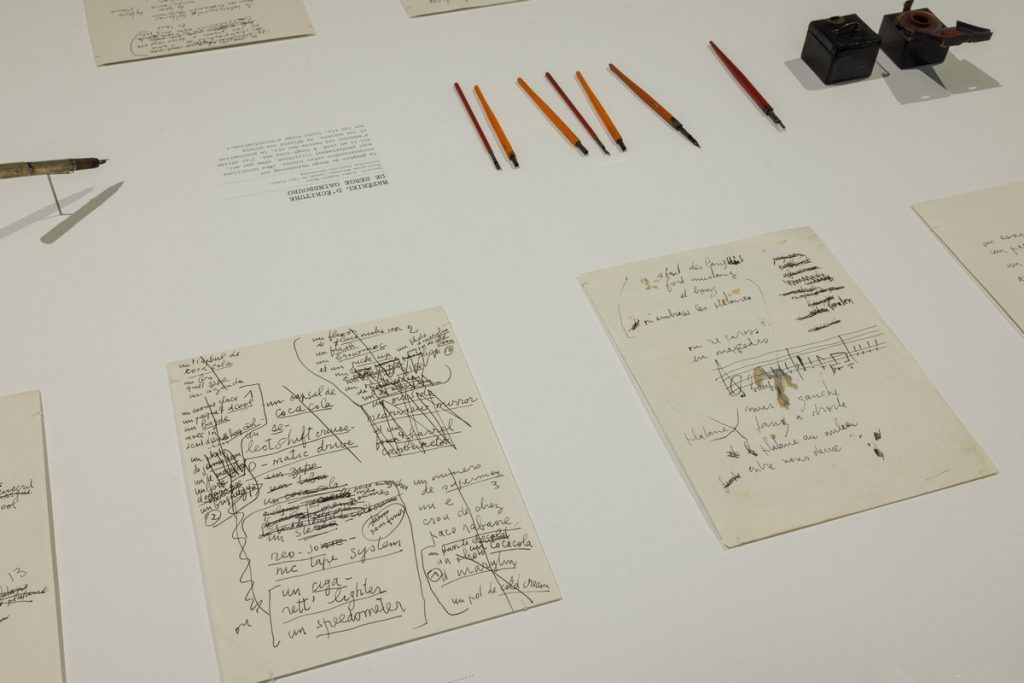
© Hervé Véronèse
To extend the visit, the public will finally be able to discover from September 20 the legendary home of Serge Gainsbourg at 5 bis rue de Verneuil, and opposite, at number 14, a museum which gathers more than 450 original objects: manuscripts, works and emblematic objects or clothing and jewelry that belonged to Serge Gainsbourg and exhibited together for the first time. Reservations for the museum are open, exclusively online, on the Maison Gainsbourg website.
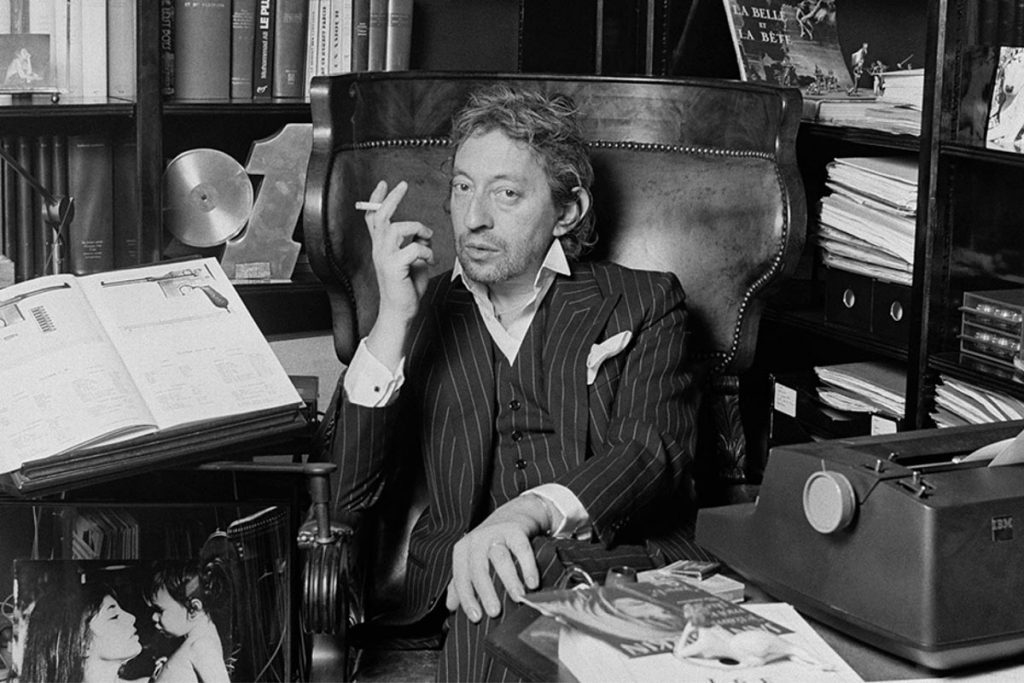
The exhibition Serge Gainsbourg, le mot exact, which presents precious manuscripts and annotated typescripts, personal objects, small papers, books from his library and archival documents, is built around three thematic parts.
As soon as you enter the exhibition, the photo of Serge Gainsbourg at his office, in which he wrote most of his texts, welcomes visitors, inviting them to enter into the intimacy of his creative process.
The first part of the exhibition focuses on Serge Gainsbourg’s library and its literary influences, metaphorically placing the artist’s personal library at the heart of the Bpi. It offers an overview of the heterogeneous literary landscape of Serge Gainsbourg, by proposing a selection of the books which fill the shelves of his office in the rue de Verneuil and which shed light on the references and inspirations of the artist: classical literature, literature of the 19th century, poetry, surrealism and the Dada movement, works devoted to cinema, biographies of musicians, pop culture… This part also presents handwritten dedications by various authors.
It also shows how Serge Gainsbourg’s literary references influenced his writing, with parallels between certain texts by literary authors and his songs: Charles Baudelaire and Edgar Allan Poe / Initials BB; Francis Picabia / Fuir le bonheur de peur qu’il ne se sauve; Vladimir Nabokov / Jane B…
The second part of the exhibition focuses on how the literary influences of Serge Gainsbourg have shaped the character of the artist, until the creation of a media double that will end up almost eclipsing it,
in the tradition of 19th century literary doubles, as in Le Horla by Guy de Maupassant or Le portrait
by Dorian Gray by Oscar Wilde. The influence of some of these characters is striking in the construction of
the image of Serge Gainsbourg. The many personal objects exhibited (canes, perfumes, gloves, etc.), as well as his
“petits papiers”, loyalty cards for restaurants, nightclubs or luxury boutiques, come to feed the
legend and bear witness to this meticulous construction. The deciphering of the concept albums L’Homme à tête de chou and Melody Nelson further accentuates this highlighting of the double, until the creation of a new
character in the early 80s: Gainsbarre.
Finally, the third part of the exhibition highlights the Gainsbourg “style” as a lyricist. Master in the use of the French language, Serge Gainsbourg leaves behind him an enormous corpus of more than 500 songs, for himself and for his interpreters, which explains his influence in the current French song. Songs marked by a sharp writing technique, where figures of speech, the musicality of words and rhythm take center stage. This part of the exhibition also highlights the work of writing with its performers, through emblematic songs (Attends ou va-t-en with France Gall, Sous le soleil with Anna Karina, Alice hélas with Catherine Deneuve), until the analysis of the “production” of three songs written in 1968, representative of this writing work: L’Anamour, Ford Mustang and
L’enfant qui dort, whose handwritten lyrics and scores are exhibited to the public for the first time.
The epilogue of the exhibition finally demonstrates through newspaper headlines, how much the words of Gainsbourg have been able to leave a trace to the point of sometimes passing into everyday language, like the title Je t’aime moi non plus, become an expression of ambivalence.
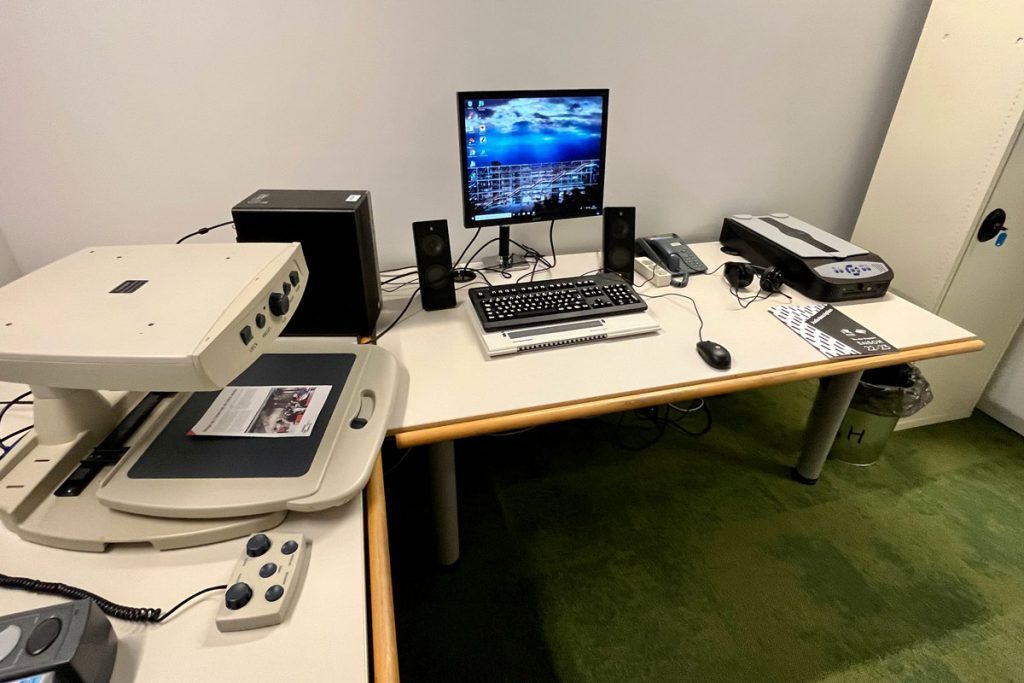
Use the PLATON platform
You can first consult the Platon catalog (Digital Works Transfer Platform) managed by the National Library of France. This allows you to check whether the document you are looking for is available in the appropriate format that suits you.
The request for an adapted work is made on site at the Bpi, at the Self-training office. The transmission of resources is done by email or on the user’s USB key.
The use of these documents is strictly personal, the file can be kept as long as the user needs it and then destroyed. Any reproduction is prohibited.
Identify or seek accommodation elsewhere
A few ways to find an accessible document:
- The BDEA, or Adapted Publishing Data Bank, managed by the National Institute for Blind Youth. This database makes it possible to consult the file of an adapted work. It allows you to locate the document but not to download it.
- Eole, offered by the media library of the Valentin Haüy association. It is a library of digital books adapted for people for whom reading is difficult due to their disability. It is possible to download books directly after creating an account for free. Librarians can help you with these procedures if necessary.
Request an adaptation
Accredited organizations can ask publishers for digital files of printed works with a legal deposit date of less than ten years. An up-to-date list of these organizations is available on the Ministry of Culture website. You can contact one of these organizations directly or seek advice from the Bpi librarians.
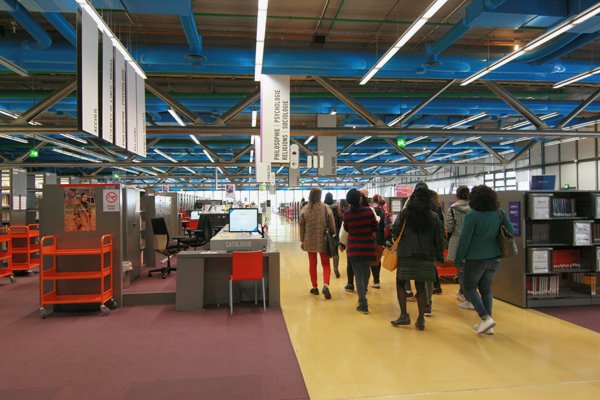
The library regularly provides tours of its spaces, collections and services as well as guided tours of its exhibitions.
These tours are for all audiences:
- new visitors
- adults taking professional training and their instructors
- people who use community centres or voluntary organisations and their supervisors
- students
- librarians or archivists
- secondary school students (accompanied by a teacher)
- … and all visitors, interested in knowing more about the library!
Pause Musée (no booking required)
Every Monday and Wednesday between 4 p.m. and 5 p.m., the Bpi and the Center Pompidou invite you to discover emblematic works from the museum’s permanent collections free of charge in the company of a guide.
Introductory tours (no booking required)
At the start of the new academic year (September and October), every Friday at 5pm the Bpi does a free guided tour of the library in a small group.
Tours of the library with booking
Group visits: in the morning before midday from Monday to Friday, except on Tuesdays
Individual tour: in the morning or afternoon, from Monday to Friday, except on Tuesdays
All tours are free of charge.
Information and bookings:
There are three options for booking a tour:
- fill in the tour request form
- email us at: visites@bpi.fr
- phone +33 (0)1 44 78 13 83
General tours to have an overview of the library
- how it operates
- its spaces
- its collections
- its services
- its search tools: classification, document portal…
Two formats are available: one-hour tours or in-depth tours lasting two hours.
Tours focusing on a space, service or specific collection in the library
The Independent Learning space, the Press space, the Music space, Employment-Learning / Everyday life space, documentary films, digital at the Bpi…
This presentation can be combined – or not – with a general tour of the Bpi.
Themed tours
If a user is interested in a particular subject, librarians can help them identify where they can find resources and materials related to the subject, like books, articles, records, electronic resources… These tours can also take the form of fun workshops to take part in, according to who the visitor is.
For classes (secondary school), the Bpi also provides tours with elements that can be arranged to suit needs and interests.
To help classes get to know the library’s resources and introduce them to documentary research, the Visitor Development service can work with teachers to design tailored projects with several sessions.
Visits for people with disabilities
People with disabilities can call on the librarians for an individual or group visit in order to locate the places. For any appointment request, call during the library opening hours on 01 44 78 13 54 or contact the Reading and Handicap department by email at lecture-handicap@bpi.fr
Tours for professionals of reading spaces and services adapted for the disabled
The Bpi offers guided tours for library professionals to discover its spaces, collections and services adapted for people who have difficulty accessing reading material because of a disability, learning difficulty or illiteracy. To register for the next visit, fill in the registration form.
Visits for professionals
The Bpi offers guided tours for library professionals to discover its collections and services, understand how it is organised and operates, and discuss professional practices. To register for the next professional visit, fill in the registration form.
Guided tours of Bpi exhibitions
Each year the Bpi organises an exhibition in its spaces. For the occasion, guided tours are provided free of charge either in the morning for groups (by booking) either every day (except Tuesdays) at 6pm for individuals (no booking required).
Documents to prepare for and complement the tour are available (tour booklet, educational file).
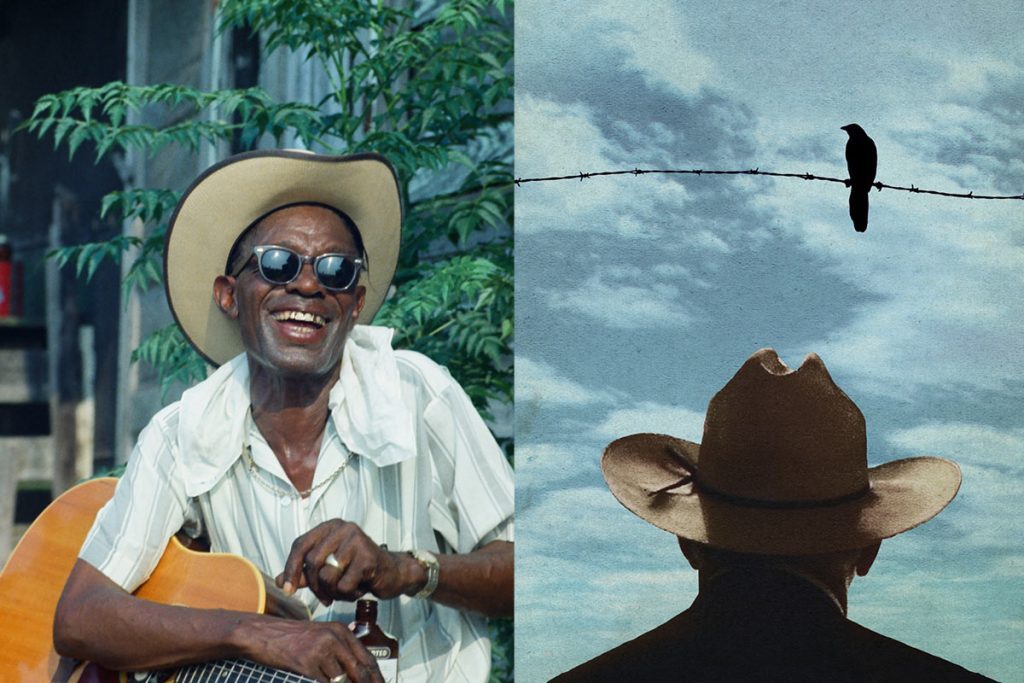
This spring’s major cycle honors not two but three American filmmakers: Les Blank, a tutelary figure of documentary filmmaking (1935-2013), famous for Burden of Dreams (1982), the story of the catastrophic filming of Werner Herzog’s film Fitzcarraldo in the Amazon jungle, and the Ross brothers, his claimed heirs, young multi-award-winning documentary filmmakers at growing notoriety. These three have in common a radical aspiration to independence and a taste for encounters that allow them to access the intimacy of their subjects and to keep track of an era, a place and their crops. They film an America of the margins and local music; they reinvest the mythical imagination of the frontier, great rivers and wide open spaces with a power and a lyricism that borrows as much from the means of fiction as from a strictly documentary approach.
After this slice of America, the month of June will be combined with the Féminin Singulier, in the company of a generation of filmmakers who have in common that they are also visual artists. A cycle in partnership with the National Center for Plastic Arts which is part of a perspective of contemporary redefinition of documentary writing and offers us a cinema open to the outside world. Formal research that will find an extension with the session of Du court, always dedicated to Paul Heintz whose work comes in different artistic forms.
his spring, La cinémathèque du documentaire à lq Bpi invites you to several invitations to travel. Trésors du doc takes us to the South Seas in the footsteps of Robert Flaherty‘s Moana with Monica Flaherty. Fenêtre sur festivals welcomes the Panorama of Colombian cinema for two screenings open to young Colombian creation. In the preview dedicated to The Republic of Silence, we follow the journey of its director, Diana El Jeiroudi, from the Syria of her childhood to the Berlin of exile. As for the Yeux doc à midi, they give us the “latest news from Asia” with twelve films that take us in the footsteps of populations facing economic, cultural, political and climatic upheavals.
It is also a portrait of the France of yesterday and today that we will be confronted, first of all with The ideal Cinematheque of the suburbs of the world which gives carte blanche to Ciné-archives, the audiovisual fund of the French communist party and labor movement. In the project he is presenting at the Fabrique des films, Jonathan Rescigno draws the portrait of a determined generation that rushes into life head first; the previews offered by France Télévisions and ARTE will respectively discuss the fate of unaccompanied minor migrants and the hospital crisis.
On the other side of these echoes of the world, the meetings of Rencontres d’Images documentaires will continue this season to explore the intimate space of literature, Jérôme Prieur and Jean-Daniel Pollet immersing themselves in Marcel Proust, René Char and Francis Ponge.
An immersion in the work of artists that we find deployed in the conferences, starting with the seminar “Le cinema en acte” in partnership with the EHESS, where Claire Simon and Stéphane Breton analyze films by Sergueï Loznitsa this year, Jean Rouch, Johan van der Keuken, Mosco Boucault and many others. As for the conferences of the Permanent University of Paris, they are devoted to the school, how to film it, its students and its teachers, each film being preceded by an introductory conference by Anne Charvin.
Ready to embark with us on a cinematic road trip? So quickly discover the complete program offered this spring by La cinémathèque du documentaire à la Bpi, or download the season’s program in PDF (french only, 1 Mo)
